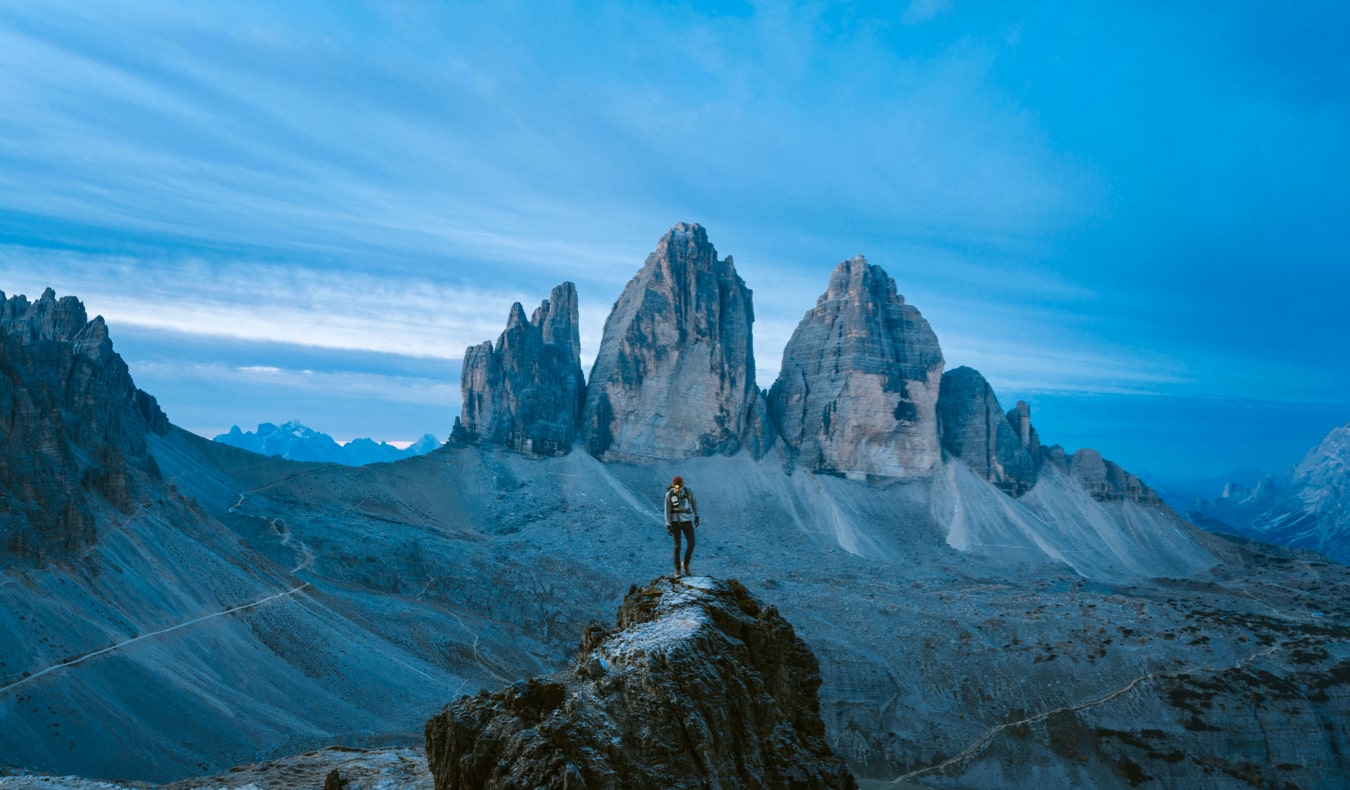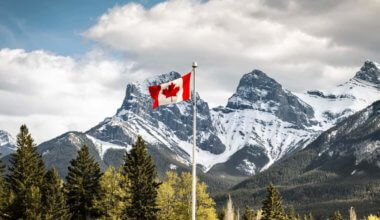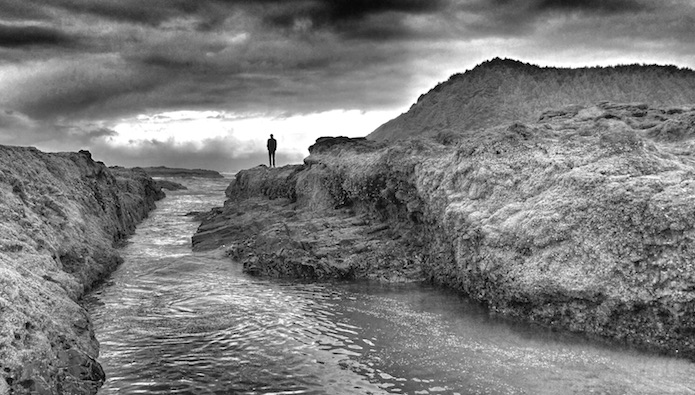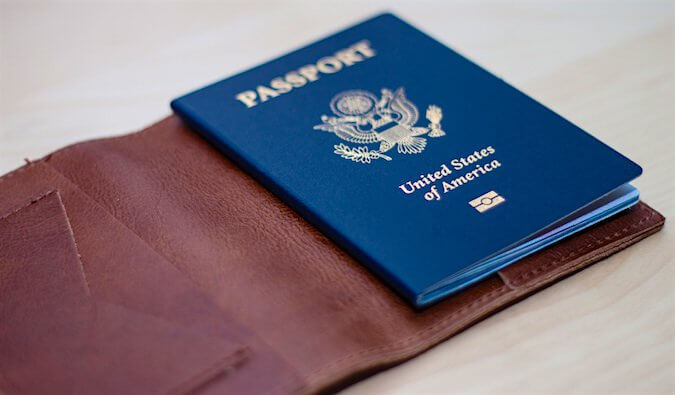
Last Updated: 8/31/23 | August 31st, 2023
Hope. Fear. Excitement. Traveling for the first time produced a wave of emotions.
When I left to travel the world on my first round-the-world trip, I didn’t know what to expect.
Now, with fifteen years of travel experience under my belt, I know better. Traveling is second nature to me now. I land in an airport and I just go on autopilot.
But, back then, I was as green as they come.
To compensate for my lack of experience, I followed my guidebooks and wet my feet by going on organized tours. I was young and inexperienced and I made a lot of rookie travel mistakes.
I know what it’s like to just be starting out and have a mind filled with questions, anxieties, and concerns.
So, if you’re new to travel and looking for advice to help you prepare, here are 12 tips that I’d tell a new traveler to help them avoid some of my early mistakes:
1. Don’t Be Scared
Fear is a powerful deterrent. Taking the leap into the unknown is scary, but remember: you aren’t the first person to travel the world. You aren’t discovering new continents or exploring uncharted territories.
There is a well-worn travel trail out there and people to help guide you along the way. If millions of people can make their way around the world each year, you can too. You’re just as capable as anyone else. After all, you did the hardest part: deciding to go. Having the courage to make that decision is the hardest part.
You’ll make mistakes. Everyone does (myself included). But that’s just part of the experience.
There will be lots of people out there to help you. You’ll be shocked at just how helpful and kind people are. You’ll make friends, you’ll survive, and you’ll be better for it.
2. Don’t Live by Your Guidebook
Guidebooks are useful for a general overview of a destination. They’re a great way to learn the basics and get introduced to the cities and countries you plan to visit. But you’ll never find the latest off-the-beaten-path attractions, bars, or restaurants in them.
For the latest info (as well as insider tips), connect with locals. Use websites like Meetup.com or Couchsurfing to connect directly with local and expats so you can get suggestions, advice, and tips to make the most of your trip.
Additionally, take a free walking tour when you get to a new city. You’ll be able to connect with an expert local guide whose job it is to share their advice. The best places to eat, best bars, best off-the-beaten-path activities — they know it all.
Lastly, ask other travelers you meet or the staff at your hotel/hostel. Visit the local tourist board as well. It’s a wealth of information that often gets overlooked. It’s staffed by locals who can point you in the right direction!
In short, use a guidebook for the foundation of your plans but fill in the details with up-to-date info from locals.
3. Travel Slow
This is something most new long-term travelers learn the hard way (myself included).
I know it can be tempting to pack in as many cities and activities as possible. (This is especially true if you only have a few weeks of vacation.)
But rushing from city to city every other day is just going to leave you exhausted and stressed out. You’ll experience a whirlwind of activity, most of which will remain a blur when you look back on it. Sure, you’ll have some great pictures for Instagram but is that really why you’re traveling?
Travel is about quality, not quantity. Don’t worry about how much you see. Don’t worry about trying to impress people with the number of countries you’ve visited. Slow down and soak up your destinations. You’ll learn more, enjoy it more, and have a much more memorable experience.
When it comes to travel, less is more. (Plus, traveling slow helps reduce your transportation costs. It’s cheaper to go slow!)
4. Pack Light
When I went to Costa Rica in 2003, I brought a bag filled with tons of stuff: hiking boots and pants, a fleece jacket, too much clothing, and my bodyweight in toiletries. And it all sat in my bag, mostly unused.
I was packing for “just in case” and “what if” instead of the reality of my trip.
While it can be tempting to bring more than you need “just in case,” remember this: you can buy things on the road. Socks, shampoo, jackets, new shoes — you can find it all abroad. There’s no need to bring everything and the kitchen sink.
So, pack light. You’ll have less to carry, saving you the hassle and stress of lugging a huge backpack around for weeks (or months) on end.
Unless you are going somewhere cold, a bag of around 40 liters will suffice. Bags around this size are easier to carry, don’t get too unwieldy, and can fit on your flight as carry-on only if need be (a huge perk if you want to save yourself some headaches).
Here’s everything you need to know to help you find the perfect bag for your budget and your trip.
5. Get Travel Insurance
Whether you’re a travel veteran or a brand new backpacker, don’t leave home without making sure you’re protected in case something goes wrong. As we learned during the COVID-19 pandemic, sudden emergencies can come out of nowhere.
I’ve had my luggage lost. I popped an eardrum in Thailand. I was knifed in Colombia.
I’ve had a friend break bones, need to be helicoptered out of the Amazon, or fly back due to a sudden death in the family.
Stuff happens. Life gets in the way.
To ensure you’re protected, buy travel insurance.
I never leave home without it because I know just how quickly things can go sideways.
You never know what might happen. The road is filled with uncertainty. Make sure you’re protected. It will also give you peace of mind and help you travel with confidence.
Here are a few posts worth reading. I know it’s not a fun or “sexy” topic, but it’s an important one!
- Is Travel Insurance Worth it?
- The Best Travel Insurance Companies
- 13 Common Travel Insurance Questions Answered
- SafetyWing Insurance Review
6. Bring a Phone (and Get Local SIM Cards)
Having a phone with data means you can look up directions on the fly, make reservations, and contact emergency services if something happens.
Sure, there is free Wi-Fi pretty much everywhere these days so buying a local SIM card for data might seem like a waste of money (especially if you’re on a really, really tight budget) but having that immediate access to roaming data can be a lifesaver.
If you’re from the US and traveling for less than 3 months, T-Mobile has reliable data plans. Google Fi is another great option too.
Additionally, having a phone makes it easier to connect and stay in touch with travelers you meet.
Simply put: having a phone (with data) is really helpful in this day and age.
Just don’t stay glued to it all the time.
7. Go With the Flow
When every day is planned out and there are timetables to follow, you’ll get stressed. Very stressed. You’ll rush around and be unhappy if there are any glitches in your well-curated schedule.
And there will be hiccups. And glitches. And all kinds of inconveniences, both major and minor. Life on the road doesn’t always go as planned — which is both fun and frustrating.
When you plan too much, there’s no room to experience the happy accidents of travel. There’s no room for spontaneous choice, for incorporating new information and advice that you learn.
When making your plan, make sure that it’s flexible. Learn to go with the flow. Plan one or two activities and let the rest of the day happen.
It’ll be a more enjoyable and less stressful experience. You’ll be surprised by what happens.
Be flexible. Let life unfold the way it should.
8. Bring Extra Money
Travel isn’t as expensive as many people think but you still need to create a budget that meets your needs. The secret to long term travel is smart money management.
However, always overestimate the amount you need. You never know what might come up on the road. After all, you didn’t spend all that time saving every penny and staying home to skip those once-in-a-lifetime activities, right?
Maybe you want to try bungee jumping or you discover an amazing restaurant you can’t pass up. Or maybe you meet some cool people and decide to scrap your plan altogether.
No matter how well you plan, something can always come up that will throw your budget out of sync.
That’s fine.
Just leave home with a little extra. If your planning says you’ll need $2,000, bring $2,500. That will give you a buffer for emergencies and spontaneity.
There will always be unexpected costs and, if you don’t create a buffer, you’ll end up going home early.
9. Remember Everyone is in the Same Boat
It takes courage to talk to strangers when you’re new to travel, especially if you’re an introvert like me. What do you say? Can you just invite people to join you? What if you end up alone?
These are all questions I had when I first started traveling. The good news? Everyone is in the same boat. All around you are other solo travelers looking for friends. They want to meet new people too.
While there are a few tricks to learn to help you meet people, it mostly just comes down to saying “hello” and taking that first step. Everything else will fall into place after that. You have nothing to lose. It will help you get over your shyness, make new friends, and get better at conversation.
10. Be Adventurous
The only time we grow is when we’re outside of our comfort zones. And travel is about growth. That doesn’t mean you need to do dangerous things, but it does mean you need to push yourself beyond what you’re used to.
Hiking, skydiving, eating new foods, camping, rock climbing, hitchhiking — whatever taking a risk looks like to you is 100% ok. Everyone has different interests and tolerance levels. Push yours. It may be scary and uncomfortable at the time, but you’ll be glad you did it later.
Challenge yourself. Try new things. You’ll walk away more self-confident.
11. It’s Ok to Change Your Mind
If you hate a city, leave and go to another one. If you don’t enjoy the tour you’re on, cancel it early. And if you really love the place you’re visiting, change your plans and stay longer. The beauty of going with the flow is that you are the master of your domain and answer to no one. Do whatever you want.
It’s perfectly normal to change your mind on the road.
Maybe that means extending your trip. Maybe that means going home early. There’s nothing wrong with either choice.
Always remember you can go home if you aren’t having fun. You aren’t stuck with your decision to travel or your decision to be in a specific place. You’re the captain on your own ship. Never forget that!
That said, don’t sell yourself short. If you’ve only been away a week and want to cancel your whole trip, give yourself more time. Life on the road takes getting used to. Homesickness is normal. After a few weeks, if you’re still not enjoying yourself, sure, head home early. Just don’t quit right away. Chances are you’ll regret it.
12. Remember, You’re Not Alone
Wherever you go, there is a network of travelers who will be your friends, give you advice or tips, and help you out. They will guide you, point you in the right direction, and be your mentors.
You aren’t out there on your own.
And you will be OK.
Everything will be OK. You’ll make lots of friends and tons of memories. Traveling alone never means you’re really alone. Trust me. I’ve been backpacking solo for fifteen years and I’ve never felt alone.
I know you’re nervous about heading out into the unknown. It’s human nature to worry. But, if you remember these words of wisdom, you’ll go into this with the right mindset and be able to avoid rookie mistakes.
So take a deep breath, relax, and enjoy your trip!
Book Your Trip: Logistical Tips and Tricks
Book Your Flight
Find a cheap flight by using Skyscanner. It’s my favorite search engine because it searches websites and airlines around the globe so you always know no stone is being left unturned.
Book Your Accommodation
You can book your hostel with Hostelworld. If you want to stay somewhere other than a hostel, use Booking.com as it consistently returns the cheapest rates for guesthouses and hotels.
Don’t Forget Travel Insurance
Travel insurance will protect you against illness, injury, theft, and cancellations. It’s comprehensive protection in case anything goes wrong. I never go on a trip without it as I’ve had to use it many times in the past. My favorite companies that offer the best service and value are:
- SafetyWing (best for everyone)
- Insure My Trip (for those 70 and over)
- Medjet (for additional evacuation coverage)
Want to Travel for Free?
Travel credit cards allow you to earn points that can be redeemed for free flights and accommodation — all without any extra spending. Check out my guide to picking the right card and my current favorites to get started and see the latest best deals.
Need Help Finding Activities for Your Trip?
Get Your Guide is a huge online marketplace where you can find cool walking tours, fun excursions, skip-the-line tickets, private guides, and more.
Ready to Book Your Trip?
Check out my resource page for the best companies to use when you travel. I list all the ones I use when I travel. They are the best in class and you can’t go wrong using them on your trip.


